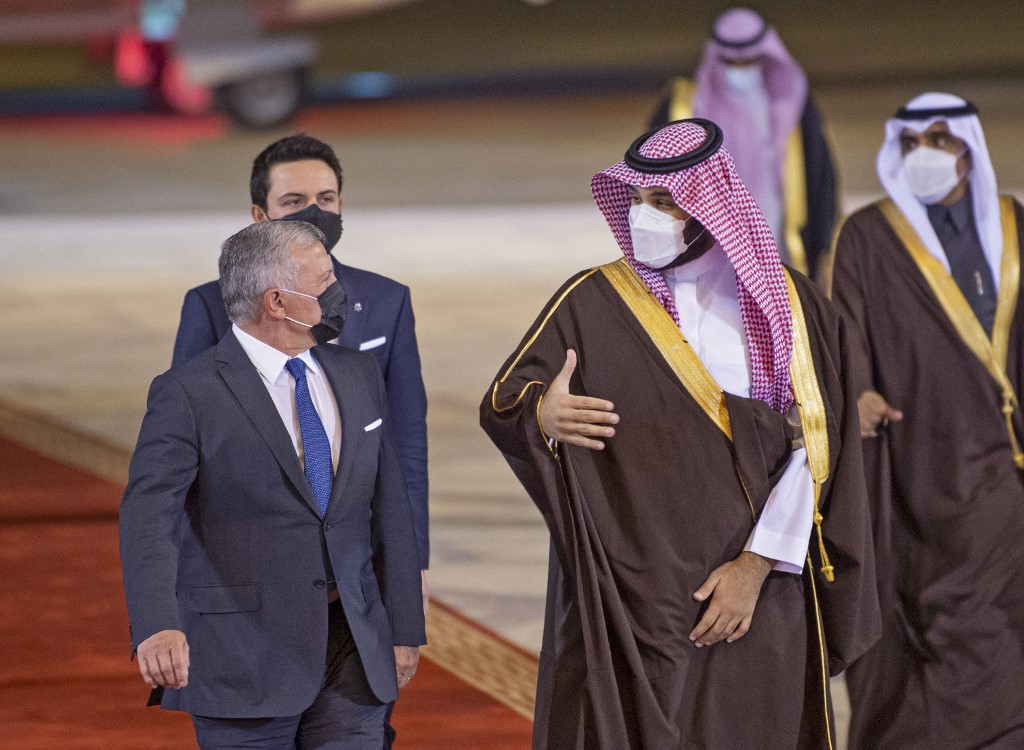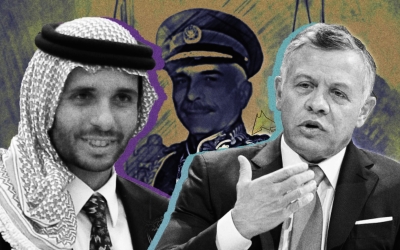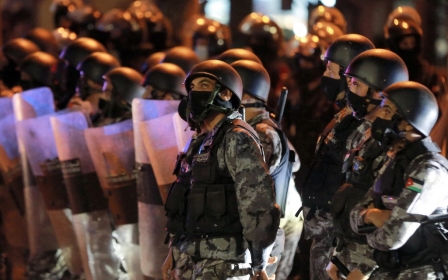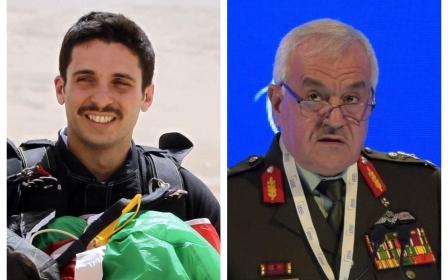Jordan coup allegations: The Israel and Saudi Arabia factor

An attempted coup was reportedly foiled in Jordan last week. But according to a reliable Middle East scholar with inside knowledge of the events, if a coup indeed took place in Amman, it was one led by the kingdom against the popular Prince Hamzah.
Jordan has long been burdened by internal fragilities, and faces a geopolitical conundrum, as brilliantly summarised by one analyst. The majority of its population is of Palestinian origin, while its ruling class comprises traditional East Bank tribes and families who have pledged their allegiance to the Hashemite dynasty since its rise to power a century ago.
In the last two decades, the country, which has a weak economy and few resources, has been further afflicted by waves of refugees and collapsed trade since the 2003 US-led Iraq invasion and the 2011 Syrian uprising.
Buffer state
Jordan is a kind of buffer state, compelled to juggle ambitious neighbours with dangerous regional agendas, such as Israel and Saudi Arabia, along with export instability and radicalism spilling out from Syria and Iraq. Considering the tensions generated by the Arab Spring in the last decade, its survival to this day verges on a miracle.
New MEE newsletter: Jerusalem Dispatch
Sign up to get the latest insights and analysis on Israel-Palestine, alongside Turkey Unpacked and other MEE newsletters
The kingdom’s security has always been guaranteed by Israel and the US, while its economic survival has relied on the benevolence of Saudi Arabia and other Gulf monarchies, along with the US. Without them it would be bankrupt.
It is unclear for how long such fruitful cooperation will be maintained amid Israel's current political landscape
The security relationship with Israel has enjoyed a long period of stability, built upon the excellent cooperation between their respective intelligence services, which has helped to foil numerous hostile projects. Jordan’s stability is essential for Israel’s security. More recently, however, this cooperation has suffered from the increasing right-wing turn in Israel.
Though the two countries reached a peace deal in 1994, the Israeli parties most opposed to a two-state solution aspire to make Jordan the future Palestinian state, allowing Israel to proceed more easily with full annexation of the West Bank. This plan was attributed to former Prime Minister Ariel Sharon in the 1980s; now, it is an acquired heritage of the more radical Zionist parties that populate the Knesset.
While Prime Minister Benjamin Netanyahu has had troubled relations with the Hashemite kingdom, the more reliable Israeli security apparatus has struggled, and thus far prevailed, in safeguarding cooperation between the two countries, against the will of Israeli far-right extremists. But it is unclear for how long such fruitful cooperation will be maintained amid Israel’s current political landscape.
Historical animosities
Jordan’s relationship with Saudi Arabia, meanwhile, is encumbered by historical animosities. After the collapse of the Ottoman Empire, the Al Saud family, with British support, ousted Hussein bin Ali al-Hashimi, who had proclaimed the Arab revolt against the Ottomans during the First World War. The creation of present-day Saudi Arabia followed, and it now boasts custodianship of the Muslim holy places of Mecca and Medina.
Hussein’s heirs, Faisal and Abdullah, got their consolation prizes: in 1921, they were made the kings of Iraq and Transjordan respectively. Over time, only the Hashemite Kingdom of Jordan survived, acquiring the additional consolation prize of custodianship of Jerusalem’s Muslim holy places.
This original sin still haunts the Jordan-Saudi Arabia bilateral relationship. The Hashemites will never forgive the Saudi usurpation, and the Saudis will never match the Hashemites’ Islamic credentials as direct descendants of the Prophet Muhammad; thus, they will always suspect and despise them.
Rumours of a possible coup orchestrated by Prince Hamzah, at first sight, resemble typical royal family internal quarrels, with bad blood over issues of succession to the throne - though external interference cannot be completely excluded.
It is far-fetched, to say the least, that the decision by Jordanian army chief Major General Yousef Huneiti to warn Prince Hamzah to refrain from contacting disaffected tribal leaders and using social networks would have been taken without the endorsement of the royal court. King Abdullah II and Prince Hamzah have had a rocky relationship since 2004, when the king stripped Hamzah of the title of crown prince.
Clumsy warning
From the leaked recording of the conversation between Prince Hamzah and Huneiti, it is evident that the warning was conveyed quite clumsily, although it is also true that Prince Hamzah subsequently pledged his allegiance to King Abdullah.
Since no specific accusation against the prince - who is nonetheless confined to his palace - was advanced during the conversation, it might be more plausible that the step was motivated by fears that the wide discontent within the kingdom could be used by Prince Hamzah to increase his already widespread popularity; a sort of pre-emptive move.
In addition, the possibility of foreign interference cannot be dismissed, with Saudi Arabia and Israel potentially keen to get rid of a king unwilling to align himself with the Abraham Accords and determined to support the Palestinian cause.
The Abraham Accords between Israel, the United Arab Emirates and Bahrain, and later Sudan and Morocco, have indeed placed a ticking time bomb under the Jordanian king’s throne. As they were being rolled out, the Trump administration had to reassure the kingdom that rumours of a possible Jordanian-Palestinian federation were false.
There are also fears that custodianship of Jerusalem’s holy Muslim sites could be Saudi Arabia’s reward for accepting normalisation with Israel, joining the four Arab states that have already done so since last year.
Too many secrets?
It is difficult to say, however, whether Prince Hamzah, who is proud of his father’s political heritage, would be the proper tool for such an ambitious plan. If a foreign hand clearly emerges, Washington may face pressure to review its neglect of Israeli-Saudi destabilisation in the region. Whether the Biden administration would actually do this and get results is a different story.
Nonetheless, Saudi Arabia quickly claimed its support for King Abdullah II - but its foreign minister also rushed to Amman to reportedly demand that one of the alleged “coup” masterminds, Bassem Awadallah, be released. Awadallah, who has curiously been both an adviser to the Jordanian king and to the Saudi crown prince, might know too many secrets on the latter and, for this reason, it would not be advisable that he remain too long in the Jordanian security services’ custody.
King Abdullah II said on Wednesday that the sedition had been quashed and the family feud resolved, and he also received a call expressing support from US President Joe Biden which sent a clear warning against any possible hostile attempt against the Hashemite monarchy.
Still, it is doubtful that Abdullah's troubles are over.
The views expressed in this article belong to the author and do not necessarily reflect the editorial policy of Middle East Eye.
This article is available in French on Middle East Eye French edition.
Middle East Eye delivers independent and unrivalled coverage and analysis of the Middle East, North Africa and beyond. To learn more about republishing this content and the associated fees, please fill out this form. More about MEE can be found here.







